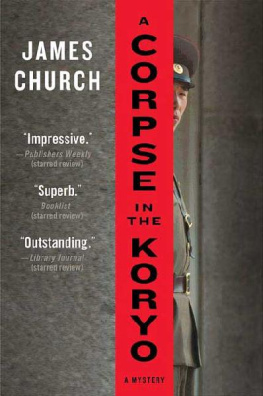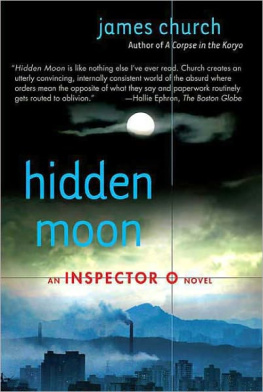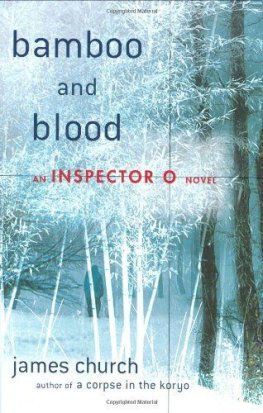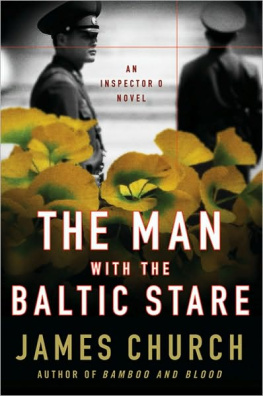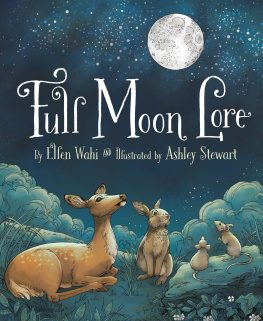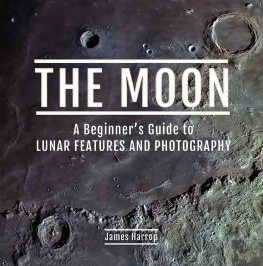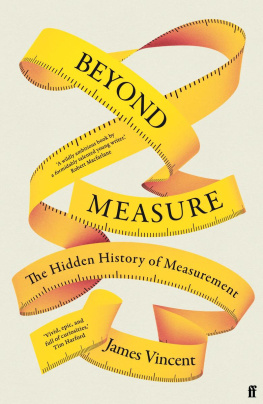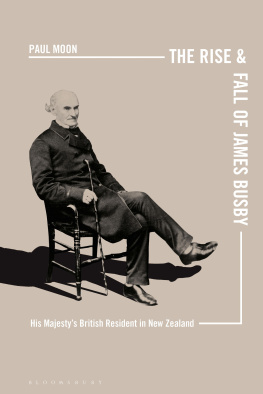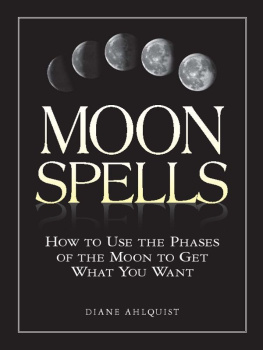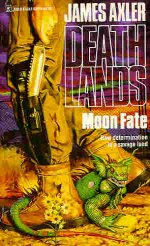James Church - Hidden Moon
Here you can read online James Church - Hidden Moon full text of the book (entire story) in english for free. Download pdf and epub, get meaning, cover and reviews about this ebook. genre: Detective and thriller. Description of the work, (preface) as well as reviews are available. Best literature library LitArk.com created for fans of good reading and offers a wide selection of genres:
Romance novel
Science fiction
Adventure
Detective
Science
History
Home and family
Prose
Art
Politics
Computer
Non-fiction
Religion
Business
Children
Humor
Choose a favorite category and find really read worthwhile books. Enjoy immersion in the world of imagination, feel the emotions of the characters or learn something new for yourself, make an fascinating discovery.

- Book:Hidden Moon
- Author:
- Genre:
- Rating:5 / 5
- Favourites:Add to favourites
- Your mark:
- 100
- 1
- 2
- 3
- 4
- 5
Hidden Moon: summary, description and annotation
We offer to read an annotation, description, summary or preface (depends on what the author of the book "Hidden Moon" wrote himself). If you haven't found the necessary information about the book — write in the comments, we will try to find it.
Hidden Moon — read online for free the complete book (whole text) full work
Below is the text of the book, divided by pages. System saving the place of the last page read, allows you to conveniently read the book "Hidden Moon" online for free, without having to search again every time where you left off. Put a bookmark, and you can go to the page where you finished reading at any time.
Font size:
Interval:
Bookmark:
Hidden Moon
James Church
PART I
Chapter One
The afternoon lay strangled in a gloom of Chinese dust. Brown light, brown shadows twisted slowly over a naked riverbed. A kilometer or so beyond-distances were hard to judge against the dim, muddied horizon-a dirt path struggled up a hillside, pulling a reluctant village of broken, brown-roofed houses. A crumbling embankment crept by. A mans head appeared. His blank eyes stared into the passing windows, then looked away, his face dusty, lungs and mouth and teeth and thoughts all gone to brown dust.
Suddenly, laughter broke out in the coach; a few passengers moved to get a better view. One woman, her voice too loud, shouted, There! From nowhere, a flash of color became the shiny red boots of a small girl, her hair flying behind, arms pumping, breathlessly leaping, soaring across a single patch of newly turned, black-furrowed earth. The girl waved, both hands above her head; the passengers clapped and knocked on the windows. The whistle sounded. For a moment, it pierced the shroud, and then, suddenly, it was gone. People returned to their reading, sleeping, drinking tea, anything to make the time pass. The train creaked around a bend; the red boots disappeared from view. One or two watched for another sign of spring, a forsythia bud or the faint feathered green of a distant willow. But there was nothing to see besides the wind, wandering through fields of rotting brown stubble. It was too soon. Even late March was too soon. And there was still too much damned dust in the air.
2
Turning from the window, I realized a man in the aisle was standing quite still, staring at me. He smiled absently when he caught my eye and nodded as if we were acquainted. For a moment, I thought he might sit down and begin a conversation, but he walked past and into the next car without a word. It was hard to tell if he had a limp or if it was just the coach swaying. I settled back to try to sleep, but the image of the riverbed stared from the edge of consciousness. Rivulets of stone fed pebbled ponds; great rivers of rock flowed to a bouldered ocean that never knew the moon. A man was walking along the gravel shore. As he passed he glanced at me, and his sallow face became a sallow sky; the image was unnerving, and worse, it would not go away. I sat up again and looked around, but the man who had been staring at me was nowhere in sight. He had been wearing a brown cloth cap, a workmans cap, though he didnt carry himself like a workman. There was something self-assured about him; his smile never broke even when our eyes met. I had felt off guard for an instant, but he didnt waver; it was as if he had been waiting for me to turn to around, to measure my reaction at being observed.
The more I thought about it, the more I realized that the idle smile on the mans lips reminded me of a boyhood friend who wore a similar look when listening to the wind in the line of trees that marked the edge of our village. Often I had watched from a distance, wondering why he was smiling. Then one day I realized it wasnt happiness but despair, a vacant smile attached to nothing, leading nowhere.
My friend, lets call him Chung, was a year older than I, a head taller, with long legs that gave him a gait I could match only by taking a small hop every few steps. He ran faster, jumped higher, than anyone else in the village. We were neighbors, his house close to my grandfathers. Chungs father had been killed in the war, somewhere in the mountains on the east coast in the brutal winter of 1950. His mother never remarried. She was small and maybe a little crazy, a woman who kept to herself and rarely talked to other people except to worry aloud about her sons health. She need not have bothered; he was never sick.
The summer before Chung and I joined the army together, we were both sent to a large cooperative farm about a hundred kilometers away to help tend the fields. Twice a month, when propaganda teams came by, we could sit on rough benches after dinner to watch a silent film playing shadows on the cracked wall of a whitewashed shed. The crickets sang but then grew still, listening to the click-click-click of the sprockets being torn, one after another, by the old projector. That was how Chungs eyes flickered when he looked at you, a broken film playing on a hot summer night.
I turned back to gaze out the window. No, I decided, the man in the aisle was a stranger; we didnt know each other. His smile meant nothing. At last I dozed, until with a groan and hiss of brakes the coaches bumped each other in protest, then came to rest. Stepping down to the platform, I shouldered my bag and made my way to the square in front of the station, wondering where to go to escape the windy gloom that swept the city. I set off toward a small restaurant a few blocks away, near the Koryo Hotel, where they served plain food, simple and cheap, a bowl of soup and, if they had any, a piece of fish. I needed something to wash the dust out of my throat. I needed to sit where the diners ate quietly, a place where, unlike in Beijing, people didnt chatter loudly to no purpose. The street was deserted; no neon signs assaulted the dark. Two cars passed slowly, their lights off. It felt good to be home.
3
Min stood in the doorway of my office, watching me sand a scrap of oak. It was from the side of a blanket chest wed found in an apartment abandoned by a smuggling ring. They might have been Ukrainian; we never knew for sure. The place had been empty for weeks. The smugglers knew we were on their trail almost before we realized they existed. It hadnt bothered me, missing a band of foreign crooks, but the Ministry wasnt pleased. Everyone who worked on the case eventually found an unflattering note in his file. The gang had used an axe on the blanket chest and on the few other pieces of furniture in the apartment as well. It was their way of telling us to keep our distance. The chest deserved better. I salvaged what I could; no sense wasting completely good oak.
I could tell from the way he fidgeted that Min had something to say. He was waiting for me to acknowledge his presence. After a minute or two, he coughed, a sign of surrender. Pardon me, Professor. Min sometimes used mild sarcasm to cover a retreat. If were not too busy, if were settled again in the office after our vacation, perhaps we could discuss police business. He paused for dramatic effect, one last effort to recapture the offensive. Theres been a bank robbery.
For a moment the sound of the sandpaper scratched at the quiet afternoon. We werent on a vacation, I said at last. We were on a delegation. I turned the oak over a few times in my hand to check for rough spots before looking up to acknowledge his main point. A bank what, did you say?
The central file must still have you listed as liaison. Why would they send an inspector on a delegation like that?
I just go where they tell me, Min.
Right. Remind me to check next time Im near the file room. He gave me a sly look. Did you go out to any of those bars? Supposed to be some good places in Beijing.
I nodded. Supposed to be. Get yourself on a delegation sometime.
Min shrugged. The furthest I ever go is Nampo to deal with drunken sailors. Did I tell you about the one that got left by his captain, off one of those foreign ships?
Once or twice.
Out of curiosity, what is it you do on those trips? Your reports dont say.
I sit a lot. Give advice.
You?
People always want to know where other people are. Sometimes they dont even ask. They walk in, I point.
Thats it?
No. Occasionally it gets exciting. Someone needs something. I go and get it.
Fine. Min walked over to my window, which looks onto the front gate and the street. Dont tell me what you do. He turned and stared outside. Nice view, he said. He was gathering his thoughts, and I wasnt expected to say anything. Finally, he turned back to me. Someone robbed the bank. I think its called a heist. He used an English term, something he rarely did, and then rubbed his broad forehead as he considered whether this was the right word. Or maybe feist. You dont watch the movies? I thought they had them on all the damn TVs in those fancy hotels in Beijing.
Font size:
Interval:
Bookmark:
Similar books «Hidden Moon»
Look at similar books to Hidden Moon. We have selected literature similar in name and meaning in the hope of providing readers with more options to find new, interesting, not yet read works.
Discussion, reviews of the book Hidden Moon and just readers' own opinions. Leave your comments, write what you think about the work, its meaning or the main characters. Specify what exactly you liked and what you didn't like, and why you think so.

